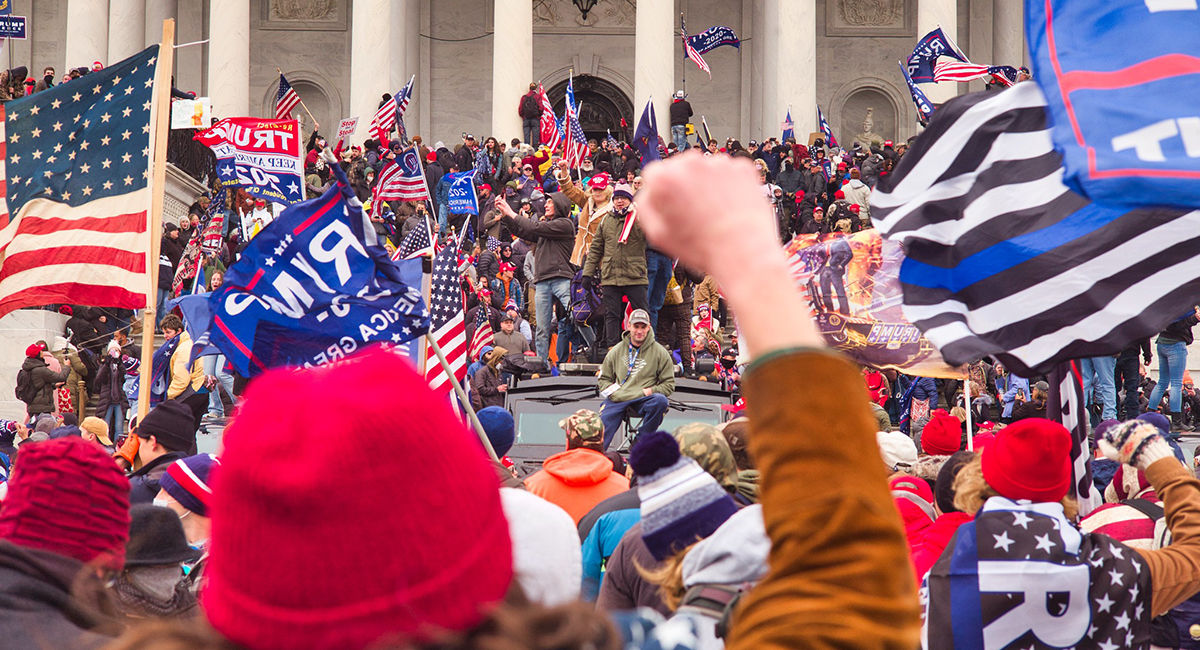When pundits first suggested bringing “sedition” charges against the Jan. 6 defendants, I predicted some likely adverse long-term consequences:
“The history of sedition prosecutions is rife with injustices, and the precedent, once established, becomes a grotesque Frankenstein monster. In many cases, the same people demanding prosecutions end up, when political fashions change, facing prosecution for the same offense.”
Ultimately, the federal government chose to ignore civil liberty fears, and several defendants were tried and convicted under a rarely used 1861 seditious conspiracy law making it a crime “to conspire to overthrow, put down, or to destroy by force the Government ... or by force to prevent, hinder, or delay the execution of any law of the United States, or by force to seize, take, or possess any property of the United States.”
Recent arrests of 35 individuals in Atlanta after an attack on a police training center on state charges of “domestic terrorism” show the continuing pertinence of civil liberty concerns.

Prosecutors in Georgia are following the same troubling and politically opportunistic approach as their counterparts in Washington, D.C. In each case, instead of limiting themselves to clearly defined, albeit more mundane, prosecutable offenses—such as property destruction, trespass, vandalism, and assault—they have ambitiously and needlessly piled on additional layers of crimes against public order such as “seditious conspiracy” and “domestic terrorism.”
Enacted in 2017, Georgia’s law follows the sweeping verbiage of earlier state and federal sedition laws. It lists a grab bag of offenses—some familiar, some new—and clumsily attempts to graft them together with the all-purpose crime of domestic terrorism. These include disabling or destroying “critical infrastructure,” crimes resulting in “major economic loss,” intimidation of “the civilian population,” or attempts to “alter, change, or coerce the policy of the government.”
With good reason, those who fought the enactment of the law in 2017 sounded an alarm about the potential threat to constitutional rights.
In his critique of Georgia’s law, Michael German, a former FBI agent and a fellow at the Brennan Center for Justice, points out that terms such as “domestic terrorism” usually have “politicized applications.” Other critics note that historically the chief victims of laws of this type are civil rights and labor activists. Federal sedition laws have a similarly unsavory past, including prosecutions of anti-war activists, such as Eugene Debs, one of the founders of the Industrial Workers of the World and five-time Socialist Party of America presidential candidate.
As is often true in history, the events in Atlanta come laden with ample helpings of irony.
Most notably, the most prominent of those charged is a lawyer from the Southern Poverty Law Center, a group that urged the broadest and most reckless application of sedition law after Jan. 6. According to an SPLC statement, the lawyer “was performing a public service, documenting potential violations of protesters’ rights. We are outraged that police officers present at the protest refused to acknowledge [his] role as a legal observer and instead chose to arrest him."
There is a valuable lesson here if people of goodwill on both the Left and the Right will act upon it.
They have an ideal opening to reach across the ideological divide and form coalitions to protect civil liberties. In doing so, they can draw inspiration from such historical examples as the pro-free speech alliance in the 1930s between Republican Alfred Landon, the GOP’s 1936 presidential nominee, and socialist Norman Thomas, a six-time Socialist Party presidential candidate.
A worthy item on the agenda of any modern coalition in defense of the Bill of Rights is to launch a full-frontal attack on the existence of these “sedition” and “domestic terrorism” laws and to emphasize that current laws protecting life, property, and person are more than sufficient to punish the offenders, whether in Washington or Atlanta.











